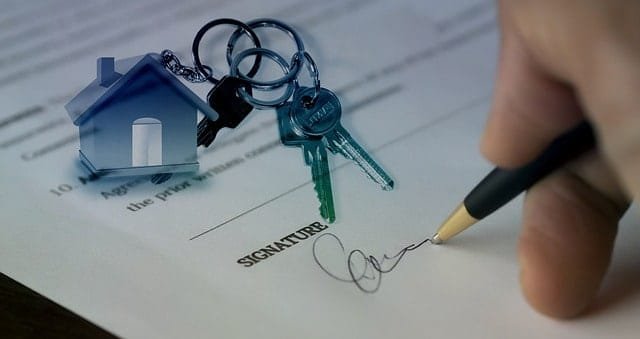Italy’s stunning landscapes, rich history, and vibrant culture make it a dream destination for many Americans. However, navigating its real estate market can feel overwhelming due to differences in legal systems, financial regulations, and language. Fortunately, the market is open to foreign buyers, and with the right guidance, owning property in Italy is within reach.
This guide simplifies the process, covering everything from legal and financial requirements to finding the right property and understanding local taxes. Whether you’re seeking a vacation home, investment, or retirement spot, these steps will help you confidently navigate Italy’s real estate market.
Can Americans Buy Property in Italy?

Yes, Americans can buy property in Italy, and the process is relatively straightforward thanks to Italy’s welcoming legal framework for foreign investors. Italy does not impose significant restrictions on non-EU citizens, including Americans, when it comes to purchasing real estate. This means that whether you’re looking to buy a charming villa in Tuscany, a modern apartment in Milan, or a historic property in Rome, the Italian property market is accessible to you.
The process of buying property in Italy as an American involves several key steps, including obtaining a Codice Fiscale (an Italian tax identification number), opening an Italian bank account, and working with a notary who will ensure that all legal requirements are met. While the legal framework is favorable, it’s important to understand the specifics, such as property taxes and the need for due diligence in verifying property titles.
Additionally, there are no restrictions on the type of property Americans can buy, and ownership rights are fully recognized under Italian law. This open and transparent legal framework makes Italy an attractive destination for American buyers looking to invest in a second home, a rental property, or a retirement residence.
Benefits of Buying Property in Italy as an American
Buying property in Italy as an American offers a range of compelling benefits, from lifestyle advantages to potential financial gains. Italy’s rich cultural heritage, stunning landscapes, and world-renowned cuisine make it an attractive destination for those seeking a second home, vacation retreat, or retirement haven. Owning property in Italy allows you to immerse yourself in the country’s unique way of life, enjoying everything from leisurely strolls through historic cities to relaxing weekends in the picturesque countryside.
From a financial perspective, Italy’s property market offers diverse opportunities. The country has various regions where real estate is not only affordable but also poised for appreciation, particularly in up-and-coming areas. For investors, Italy’s tourism industry provides the potential for lucrative rental income, especially in popular tourist destinations like Rome, Florence, and the Amalfi Coast.
Additionally, Italy has a favorable tax regime for foreign property owners. For example, non-residents are only taxed on income generated within Italy, such as rental income, and may benefit from double taxation treaties.
Overall, buying property in Italy allows Americans to enjoy a rich, fulfilling lifestyle while also potentially benefiting from long-term financial rewards.
The Process for Americans Buying a Property in Italy

Buying property in Italy as an American involves a clear and structured process. Here’s a step-by-step guide to help you navigate the journey:
Obtain a Codice Fiscale: The first step is to secure a Codice Fiscale, an Italian tax identification number required for all legal and financial transactions. This can be obtained through the Italian consulate in the U.S. or directly in Italy.
Open an Italian Bank Account: You’ll need an Italian bank account to facilitate the financial transactions involved in the property purchase, such as paying taxes, utilities, and property-related fees.
Find the Right Property: Engage a local real estate agent familiar with the Italian market. They can help you identify properties that meet your criteria and guide you through the search process.
Conduct Due Diligence: Before making an offer, it would be useful to do due diligence with the assistance of a trusted lawyer; sometimes, depending on the complexity of the transaction and if there is renovation work to be done, a surveyor and/or architect should also be involved.t.
Make an Offer: Once you find the right property, you’ll make a formal offer. This is usually done through a preliminary contract (Compromesso), which outlines the terms of the sale and requires a deposit (typically 10-20% of the purchase price).
Hire a Notary: Next, hire a notary who will make a formal check on the provenance of the property right.
Final Purchase: Sign the final contract (Rogito) in the presence of a notary. At this stage, you’ll pay the remaining balance, and ownership will be transferred.
Register the Property: The notary will register the property in your name at the local land registry, completing the process.
Essential Tips for Americans Buying Property in Italy

Buying property in Italy as an American can be an exciting venture, but it requires careful planning and consideration. Here are some essential tips to guide you through the process:
Finding and Choosing the Right Property
Italy offers a wide variety of properties, from rustic countryside villas to chic city apartments. Start by identifying the region that best suits your needs, whether it’s the rolling hills of Tuscany, the stunning Amalfi Coast, or the vibrant cities like Rome and Milan. Consider factors like climate, accessibility, local amenities, and your intended use of the property. Engage a reputable local real estate agent who understands the market and can help you find properties that match your criteria. They can also provide valuable insights into the neighborhood and help you assess the property’s potential for appreciation or rental income.
Financial Planning and Costs
Understanding the financial aspects of buying property in Italy is crucial. In addition to the purchase price, you’ll need to budget for various costs, including:
Property Taxes: Purchase taxes vary depending on whether the property is a primary or secondary residence.
Notary Fees: Notaries in Italy handle the legal aspects of property transactions, and their fees are typically 1-2% of the purchase price.
Real Estate Agent Fees: Usually, the buyer and seller split the agent’s commission, which is around 3-5% of the property price.
Maintenance Costs: Factor in ongoing costs like property management, utilities, and any necessary renovations.
It’s advisable to have your finances in order before starting the search, including securing pre-approval for a mortgage if needed. Remember to also consider currency exchange rates and the potential impact on your overall budget.
Engaging with Local Experts
Buying property in Italy requires navigating a complex legal and administrative system. Engaging an experienced lawyer who specializes in real estate is essential to ensure a smooth process. From the initial property search to the final signing in front of a notary (Notaio), a lawyer specializing in Italian real estate will guide you through every stage. They will conduct thorough research, verify property titles, and address any legal complexities that may arise. While a notary is responsible for overseeing the formal aspects of the transaction, it is the lawyer’s expertise that can be decisive in protecting your interests and ensuring a secure investment.
Tax Considerations
Understanding the tax implications of buying property in Italy is essential for financial planning. As an American, you’ll be subject to Italian property taxes, including:
IMU (Imposta Municipale Unica): A municipal property tax applicable to second homes or luxury properties.
TASI (Tax on Indivisible Services): Covers local services like street lighting and road maintenance.
Registration Tax: Varies based on whether the property is your primary or secondary residence.
Additionally, consider the implications of U.S. taxes on foreign property ownership. The U.S. has a tax treaty with Italy, which may help avoid double taxation, but it’s advisable to consult with a tax professional who understands both U.S. and Italian tax laws.
By following these tips and working with experienced professionals, you can make informed decisions and enjoy a successful property purchase in Italy.
Residency and Integration as an American Buying Property in Italy

For Americans looking to stay in Italy long-term after purchasing property, understanding the residency options is crucial. Italy offers several visa pathways for non-EU citizens, including the Elective Residence Visa, ideal for those who can support themselves financially without working in Italy. This visa is popular among retirees and individuals with passive income sources.
Another option is the Investor Visa, which requires a significant financial investment in Italy, such as purchasing government bonds or investing in an Italian company. This visa grants residency and can lead to citizenship after a certain period.
Once you obtain a visa, you can apply for a Permesso di Soggiorno (residency permit) upon arrival, allowing you to live in Italy legally. Integrating into Italian life involves learning the language, understanding local customs, and becoming part of the community, all of which enhance the experience of living in Italy.
Frequently Asked Questions About How to Buy Property in Italy as an American
No, you do not need to be a local or permanent resident to buy property in Italy as an American. Italy allows non-EU citizens, including Americans, to purchase real estate without residency requirements. However, if you plan to spend extended periods in Italy, you may need to apply for a visa or residency permit.
The primary legal requirements include obtaining a Codice Fiscale (Italian tax identification number) and opening an Italian bank account. You will also need to work with a notary (Notaio) to handle the legal aspects of the transaction, including verifying property titles and ensuring compliance with local laws.
In addition to the purchase price, typical costs include:
Property Taxes: Varies depending on the type of property and its use.
Notary Fees: Approximately 1-2% of the purchase price.
Real Estate Agent Fees: Typically 3-5% of the property price.
Registration Fees: For recording the property transfer.
Financing a property purchase in Italy can be done through various means, including using personal savings, international funds, or obtaining a mortgage.
Yes, mortgages are available for Americans looking to buy property in Italy. Italian banks offer mortgages to non-residents, but terms and conditions can vary. It is advisable to consult with a financial advisor or mortgage broker to explore your options, understand the requirements, and determine the best financing solution for your needs.
Can Lexidy Help Me Buy a Property in Italy?
Navigating the process of buying property in Italy can be complex, especially for foreign investors. From understanding the legal requirements to managing financial aspects and ensuring a smooth transaction, having expert guidance is invaluable. At Lexidy, we specialize in providing comprehensive support for international clients, including those interested in the Italian real estate market.
Our experienced team can assist you with every step of the property purchase process in Italy, from securing a Codice Fiscale and opening an Italian bank account to coordinating with local notaries and real estate agents. We’ll help you understand the financial implications, manage property-related costs, and explore mortgage options tailored to your needs.
If you’re considering purchasing property in Italy and need expert advice and personalized assistance, Lexidy is here to help. Fill out the form below to start your journey toward owning a property in one of Europe’s most beautiful and historic countries.



